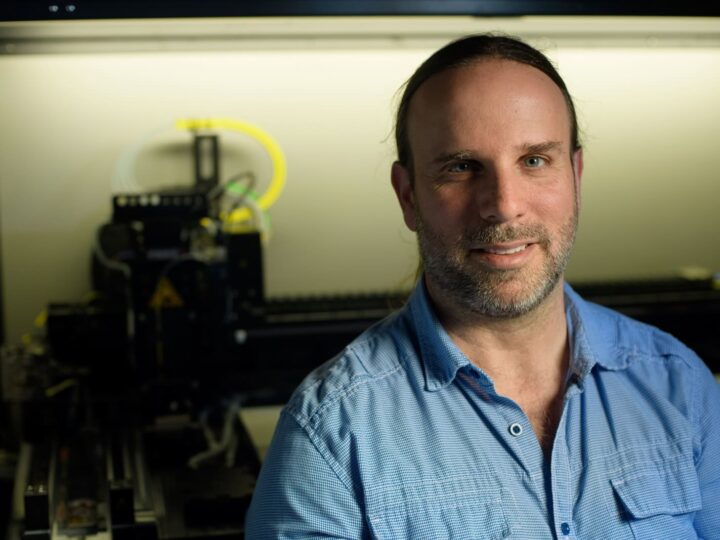Immunotherapy — activating the immune system to fight cancer — has been one of the most significant developments in the world of cancer treatment. But it still isn’t a cure-all, and scientists have been working to improve its delivery and efficacy.
A recent breakthrough by Israeli and Portuguese scientists could result in cancer immunotherapy in a pill form that wouldn’t require a hospital stay or intravenous injection, would be less expensive, and may offer other benefits as well.
Researchers at Tel Aviv University and the University of Lisbon, led in Israel by Prof. Ronit Satchi-Fainaro, head of the center for cancer biology research and the laboratory for cancer research and nanomedicine at TAU’s medical school, developed a synthetic molecule that is many magnitudes smaller than even the most advanced immunotherapy antibodies.
The small size allows the molecule to penetrate and reach less accessible and less exposed areas of solid tumors.
Moreover, unlike traditional immunotherapy antibodies, which have a hard time surviving the harsh acidity of the intestinal tract, the new molecules “have been designed especially to be resilient and not degrade in the gut, which opens up the exciting possibility of giving them orally,” explains Satchi-Fainaro.
Most immunotherapy medications must travel through blood vessels to reach the tumor. The new tiny molecules can find their way to the target by diffusion without needing the “road” of blood vessels.
The small synthetic molecules also would be much less expensive to produce at large scale than are today’s biological-based immunotherapy drugs, potentially enabling many more people to access immunotherapy.
“We have already synthesized the small molecule with simple equipment, in a short time and at a fraction of the cost,” Satchi-Fainaro notes.
Allowing patients to take the drug orally at home will also bring down the price by eliminating hospital costs.
As described in the Journal for ImmunoTherapy of Cancer, the team has tested the molecule in vitro as well as on a human tumor in a special lab model, but not yet with actual patients. A commercial product is still years away, as further development and human testing is needed.
ISRAEL21c has written about Satchi-Fainaro’s research on numerous occasions. She was featured in our article on bio-convergence. More recently, she has identified ways to treat melanoma and glioblastoma, an aggressive brain cancer.
The current research was supported by Fundação para a Ciência e a Tecnologia, Ministério da Ciência, Tecnologia e Ensino Superior (FCT-MCTES), the Israeli Ministry of Health, La Caixa Foundation, Liga Portuguesa Contra o Cancro, the ERC, the Israel Science Foundation, the Melanoma Research Alliance, the Israel Cancer Research Fund Professorship Award and the Morris Kahn Foundation.

















